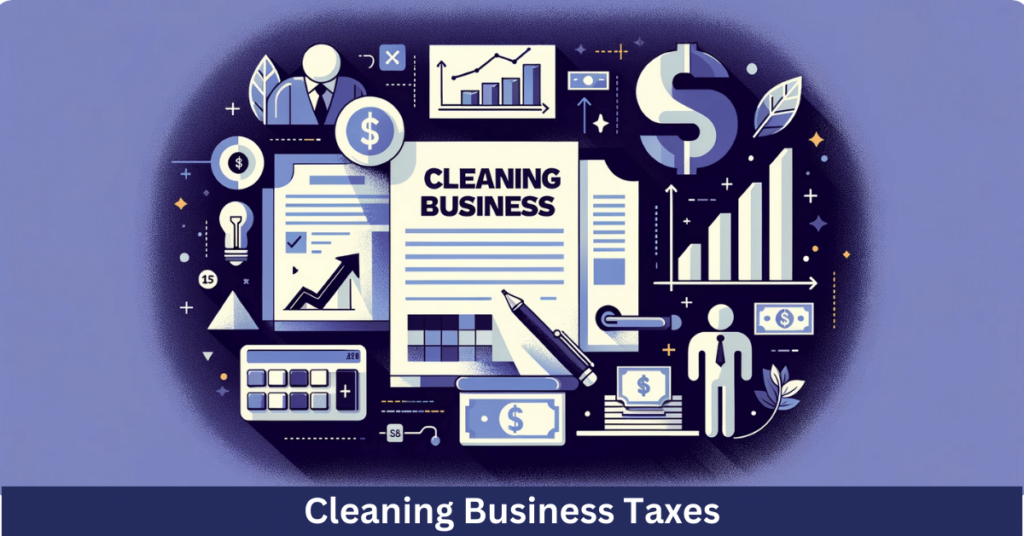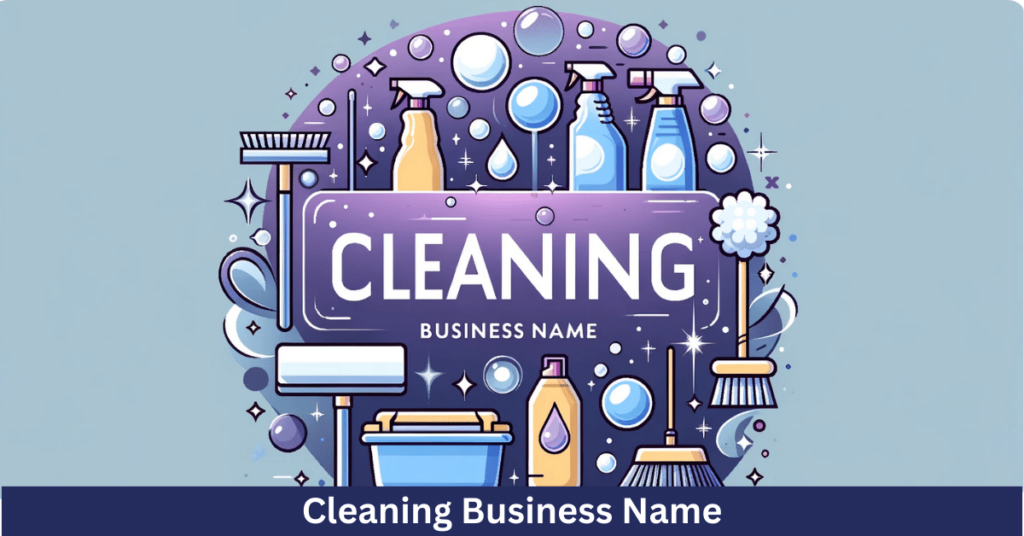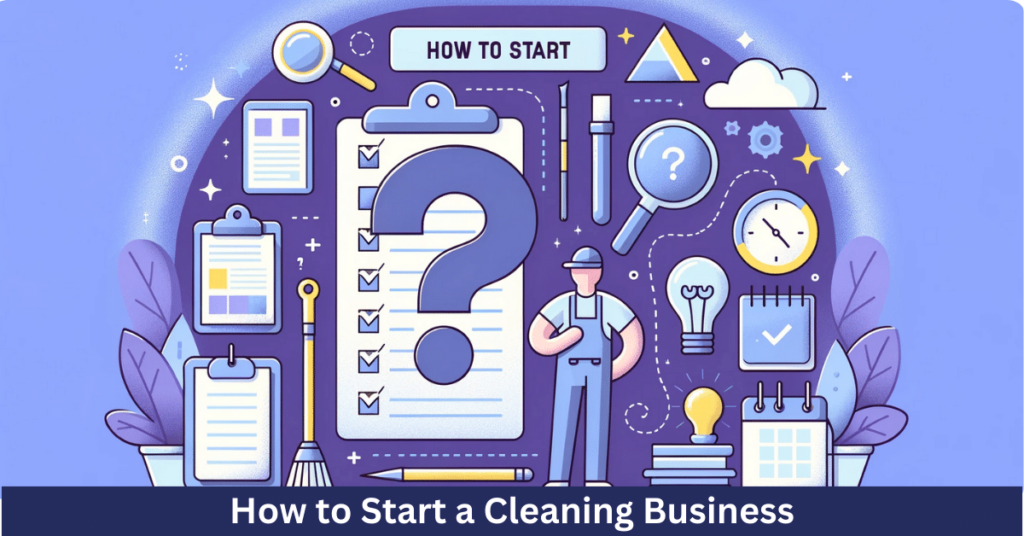"Please note: This content is for informational purposes only and is not intended as financial or tax advice. Always consult with a qualified tax professional to address your specific needs and circumstances."
Whether you’re starting a cleaning business in America or you already own one, you need to understand the country’s taxation laws.
Taxes are an inevitable part of our lives, but especially for business owners. It is the sum of money paid to the government by businesses and individuals. The government then spends its tax revenue on public goods and services needed by the community.
As a new business owner, showing negligence in paying taxes can cause several problems for you. For instance, as the tax time draws near, you may receive a hefty tax bill of hundreds or even thousands of dollars.
Also, paying late might add up to the tax bill in the form of interest and penalties. So, before you regret not paying the tax on time, learn about the taxes you need to pay for your cleaning business.
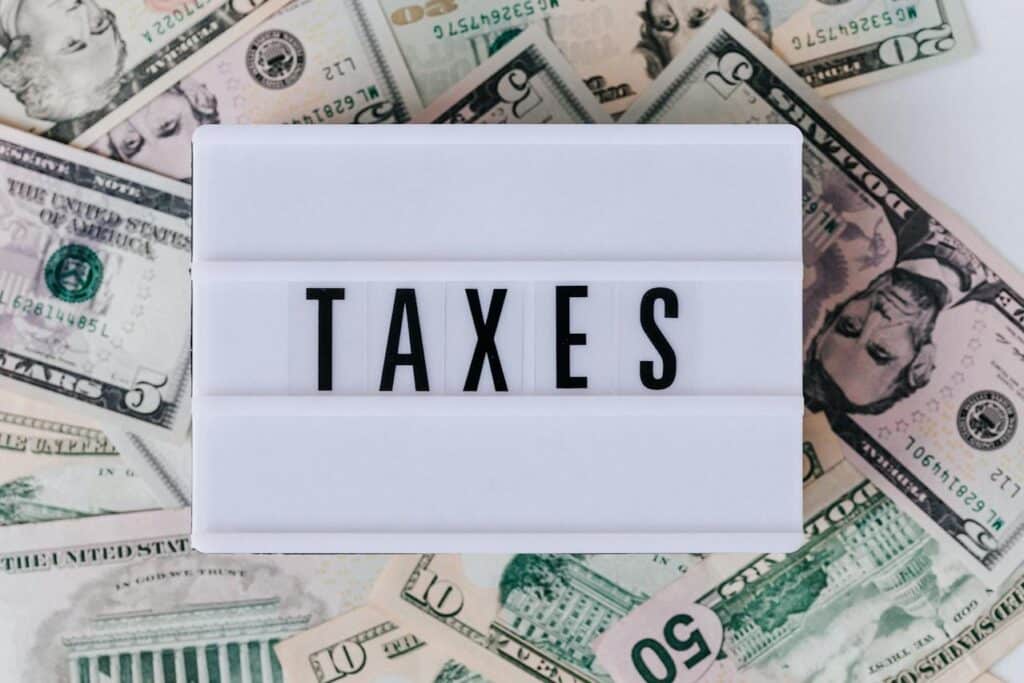
Types of Business Taxes in America
As an American business owner, you need to pay a range of taxes at the federal, state, and local levels. While some states do not ask for tax registration, others require you to pay taxes strictly on time.
Florida, Alaska, Iowa, South Carolina, and North Carolina are ruled out of personal income taxes. So, if you live in any one these states, you are not obliged to get yourself registered.
But if you are a self-employed cleaner in other states and operate as general partners or sole proprietors, you need to pay the taxes.
Use Tax
If you are running a house cleaning business in particular, you need to pay the use tax. However, if you aren’t sure when exactly it comes into play, here’s what you need to know.
Consider you ordered cleaning supplies through mail outside the state or online, and the seller didn’t charge sales tax for your items; here’s when you are held liable to pay the tax.
As a responsible citizen, you should be aware that you just bought wholesale items, you are utilizing them for your business, but you didn’t pay the sales tax.
To elaborate further, consider you purchased 40 sponges wholesale to sell to customers. You sold 25 sponges and used the remaining 15 for your cleaning company; you owe a tax on these 15 sponges.
So, make sure you do not miss out on including the items for the use tax. In case the state audits your business, it’ll be a painful reminder.
The penalty rates vary between 5% to 10% or more, which you wouldn’t feel comfortable paying.
Sales Tax
In the United States, sales tax is a consumption tax levied on goods and services sold to consumers. Simply put, it is a tax on customers.
Your responsibility is to collect the sales tax from the customers, hold it for a period of three months and then send the tax amount to the state. Make sure you work smart, and as soon as you receive the payments from customers, separate the sales tax from the other payments.
Pro Tip: To avoid the temptation of using the sales tax, remind yourself that the money belongs to the state. You can do so by setting up a tax savings account at the credit union or your bank. Then, at the end of each week, transfer the sales tax into that account, and you’re good to go.
New York, New Mexico, Texas, Pennsylvania, New Jersey, Arkansas, Ohio, Kentucky, Connecticut, District of Columbia, Minnesota, South Dakota, Washington, and Nebraska are a few states where house cleaners collect sales tax.
County Tax
Almost every county in which you operate your business will levy a tax on your company somehow. In some states, the county tax is paired with the sales tax, while in others, counties collect the taxes by the end of each year.
So either way, you are liable to pay the tax. To get more information about county tax, you can contact your county clerk’s office.
the Complete Cleaning Business Starter Kit
Get our FREE Comprehensive Start-Up guide, complete with a checklist, business card template, pricing calculator and Invoice template.
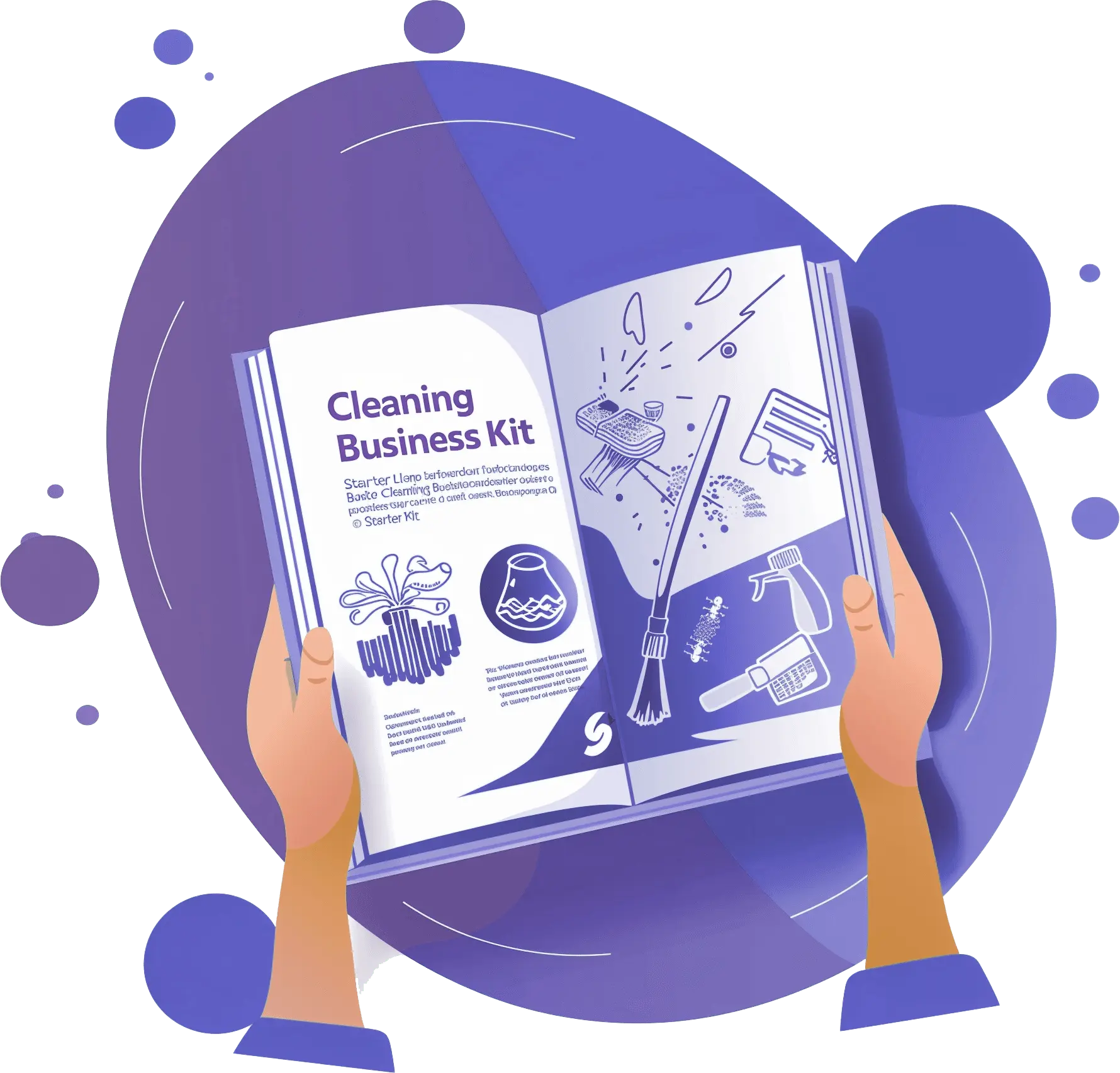
Self-Employment Tax
The self-employment tax is a collection of Social Security and Medicare taxes that applies mainly to independent contractors.
In most companies, the employees pay half of the amount while the other half is paid by their employers. Regardless of how self-employed people are liable to pay the entire tax amount.
The self-employment tax rate is 15.3%. It is divided into two parts:
- Social Security (disability insurance, old age, victims) = 12.4%
- Medicare (state health insurance) = 2.9%
While the employers calculate this tax in most companies, you can figure out the exact amount of self-employment tax through Schedule SE (Form 1040 or 1040-SR).
To pay for self-employment tax, you must have an Individual Taxpayer Identification Number (ITIN) or Social Security Number (SSN).
Apply for social security number:
- Using Form SS-5 (Application for social security number)
- Call (800) 772-1213
- You can download the social security form here
Get an Individual Taxpayer Identification Number by applying for Form W-7 Application for IRS Individual Taxpayer Identification Number.
State Tax on Business Income
Taxes on business income are generally paid by sole proprietors and general partners on their annual state income tax returns.
Texas, Florida, Alaska, Washington, Nevada, South Dakota, New Hampshire, Tennessee, and Wyoming so far have no income tax.
Nevertheless, it’s imperative to note that there are still some statewide business taxes in the aforementioned states. In Nevada, for instance, businesses with gross revenues of $4 billion are required to file a business tax return.
Similarly, Washington state files a business tax through (B&O) Business and Occupation tax. Additionally, countries with no income taxes collect a variety of other municipal taxes and fees.
Cleaning Business Tax in America
Just like any other business, you need to pay taxes for your cleaning business in America. No matter what type of cleaning services you offer, paying taxes is essential if you want to keep your business up and running.
Your company might be offering one or the other services.
- Carpet cleaning
- Street cleaning
- Road sweeping
- Interior/exterior cleaning
- Gutter cleaning
- Park cleaning
- After-event cleaning
As a savvy and attentive entrepreneur, you must keep a record of all your transactions. This will expedite the taxation process and provide you with a money trail of the sent and received payments from your contractors.
Tax Deductions in Cleaning Business
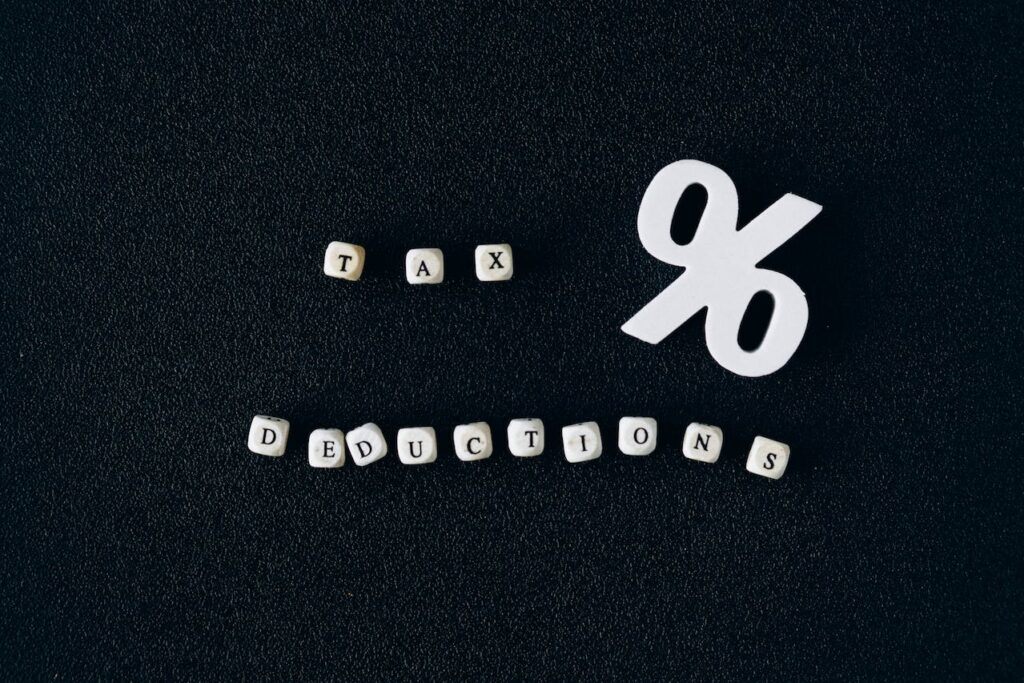
As a cleaning business owner, taxes are perhaps the last thing you’d want to think about. But if you won’t pay attention to your business expenses, you might lose lots of cash each year.
To avoid regretting at tax time, you may want to be aware of all the tax concessions in your cleaning business.
Also, you should be smart enough to claim things at the right time, or you’ll miss out on significant tax benefits (deduction)
Most importantly, these tax deductions apply to those business expenses that you pay out of your pocket, not those that your employer reimburses.
Uniforms and Protective Gear
If you have to wear a cleaning company’s uniform or any protective clothing (you paid for), you can claim a deduction for these expenses. These can include:
- Hats
- Gloves
- Shoes
- Masks
- Sun protection
- Laundry uniform
- Compulsory uniform
- Glasses
Nevertheless, note that you’ll be eligible for tax concession in two cases:
- Your uniform has the company's logo
- You bought or repaired the items from your personal bank account
Note: You cannot claim any clothing items outside your work, like any trousers or shirts.
Cleaning Supplies
Also, you cannot claim depreciation expenses if:
- You use cleaning supplies only for work
- Your employer or third party has not supplied them to you
Here are a few tax-deductible items:
- Garbage bags
- Cleaning chemicals
- Cloths and wipes
- Carpet cleaning items
- Bathroom cleaning products
- Small machinery
- Sponges and scrubbers
- Brooms
- Mop and bucket
Car Expenses
For car expenses, you cannot claim a vehicle tax deduction if:
- You use a company vehicle
- You use your car to drive to work
However, if you’re traveling for work-related tasks like conferences, meetings, or business visits, you can claim expense charges on your vehicle.
Also, note that you need to record your travel expenses smartly. Sometimes, the most straightforward methods are not that profitable; therefore, a qualified tax preparer can offer the best advice to you in this regard.
Home Office Deduction
If you run a home-based cleaning company, you can claim a part of your housing costs as a home office deduction. But how is the accurate figure calculated?
Well, this number is determined by dividing the square foot of your whole house by the square foot of your home office.
There are many pros to operating a home-based cleaning office. For instance, you can minimize your costs because you’re not leasing a space for your business. Second, you’ll grab on some home-based office tax deductions.
Business and Liability Insurance
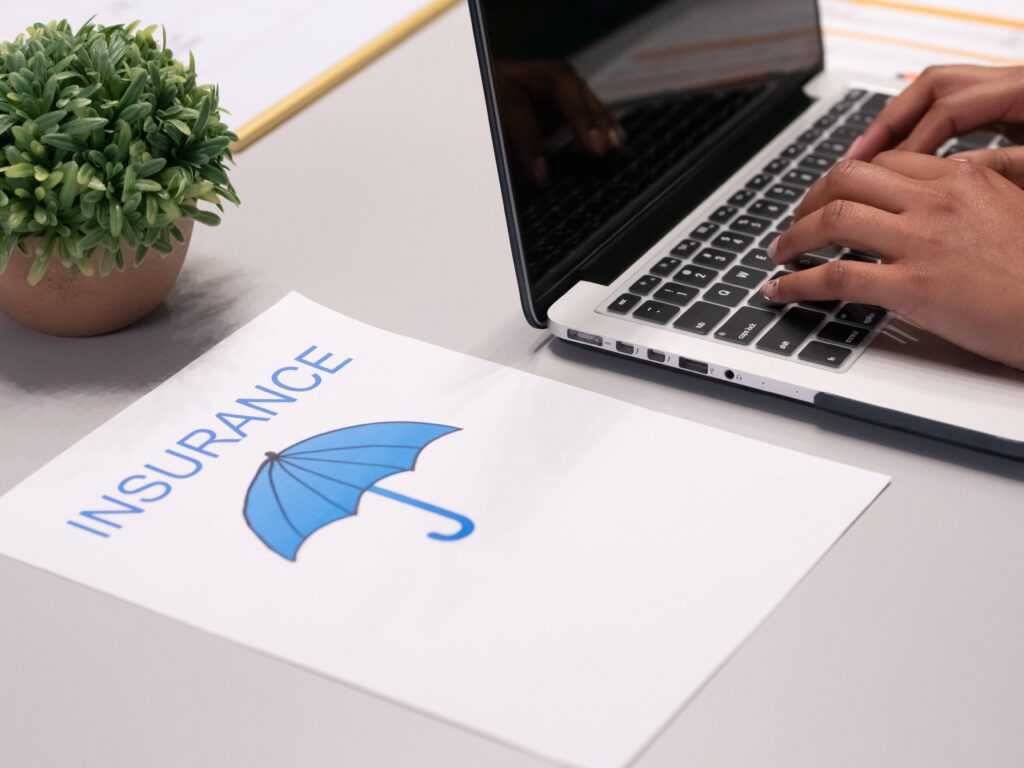
If you are self-employed, you can deduct the costs of any insurance premiums, including health, dental, business, or liability insurance.
Also, if you’re using a vehicle for work-related travels and the owner chooses to record the actual expenses instead of regular miles, you can claim a vehicle insurance deduction.
Administrative Expenses
As a self-employed person, you have the responsibility to manage the business along with administrative work. Nevertheless, if you have the option of outsourcing or hiring an assistant, you can write off these costs too.
Therefore, any business-related expense, such as the software you use in your firm or anything to keep your business running smoothly, can be considered a tax write-off.
In fact, if you operate as a limited liability company (LLC), there is an extensive list of tax deductions to consider.
Marketing Expenses
Finding new clients is not an easy task. In addition to patience, you require a lot of hard work marketing and advertising your business. Luckily, you can write off all the marketing expenses, and it’ll save you money eventually.
When the tax return time draws closer, you can record all the advertising-related expenses. These might include one or more of expense listed below:
- Internet advertising
- Events for networking
- Market-related services
- Social media marketing
- Print advertisements
- Marketing tools and software
- Billboard ads
Contractor
While some self-employed entrepreneurs run their businesses alone, others hire contractors. If you are from the latter group, you need to write off the expenses.
As opposed to full-time employees, independent contractors are usually employed on a contract basis. First, you need to provide Form 1099-MISC to your contractor. Once they file their tax return, you can give them to IRS along with the 1096 Form. This will indicate how much money you paid them.
the Complete Cleaning Business Starter Kit
Get our FREE Comprehensive Start-Up guide, complete with a checklist, business card template, pricing calculator and Invoice template.

Tax Tips for Cleaning Business Owners
Below we’ll share some tax tips that’ll help you as a business owner.
Keep Accurate Records

In today’s tech-driven world, you need to track all your spending, expenses, earnings, and payroll. And unfortunately, cash is not the way you run your business.
Today, we have several accounting options. For instance, when you use your card (debit or credit) to buy things, everything is logged into your accounting software.
Also, when you open your mobile banking app to make a deposit, you can view it in real-time.
So, if you want to know where you are spending and receiving all your money, look through your accounting software, and you’ll find the data there.
Keep Records of 5 Years
Once you have all your receipts saved, you need to categorize them and keep them for five years. Different business categories allow tax write-off.
For instance, if you use a mobile phone for your business (it’s obvious that you do), it is tax-deductible. All the apps you download or monthly bills you pay for your phone can be claimed for a tax deduction.
Home Deductions
If you run your business at home, you can claim a tax deduction. Also, it doesn’t only have to be an office at home. In other words, even if you use a room at your home as a warehouse (for keeping cleaning equipment), you are eligible to claim a fund.
Use a Company Vehicle

Of course, you need a car to carry your cleaning supplies from one place to another. As such, you need a reliable transport system. Fortunately, you can claim a tax deduction for the vehicle as well.
However, ways to deduct tax for a company car may differ. So, you can consider typical vehicle deductions like car insurance, price, maintenance, oil, tires, etc.
Take Standard Deductions
Every business has deductions typical to that particular industry. For instance, the standard deductions for cleaning business would be the cleaning supplies.
Nevertheless, not all supplies that have to do with cleaning lie in the cleaning business supplies category. For instance, if you bought a grass strimmer, it won’t count as a cleaning supply rather as a landscaping or gardening business.
Spend Wisely
The world is full of business owners who lost their money because their financial advisors led them astray. So, make sure you keep track of all your money coming in and going out.
A slight negligence or ignorance can impact your business negatively.
The Bottom Line
The establishment of your cleaning company can be rewarding, yet it comes with specific responsibilities like any other business. As a responsible business owner, you should file your taxes on time. Luckily, you can save some money by claiming for tax-deductible expenses when needed.
Frequently asked questions
Have some questions about your cleaning business, see below for some commonly ask questions
Keeping track of your actual expenses comes in handy at tax time. Here’s what you can do:
- Use your mobile phone to click photos of all the receipts or scan them through a scanning app.
- Use accounting software to keep track of all your spending and taxes
- File the record digitally on your PC or USB drive (pretty secure in case you do not lose your USB drive)
A Limited Liability Company is a wise decision for your commercial cleaning business if you:
- Want to protect your assets
- Look forward to expanding your business
- Want to gain client trust by being credible
- Have the ability to make tax decisions that benefit your cash flow

